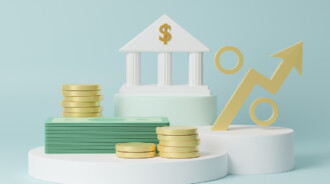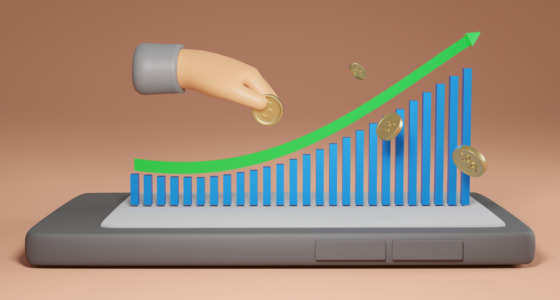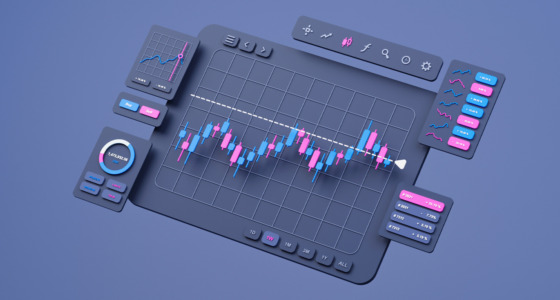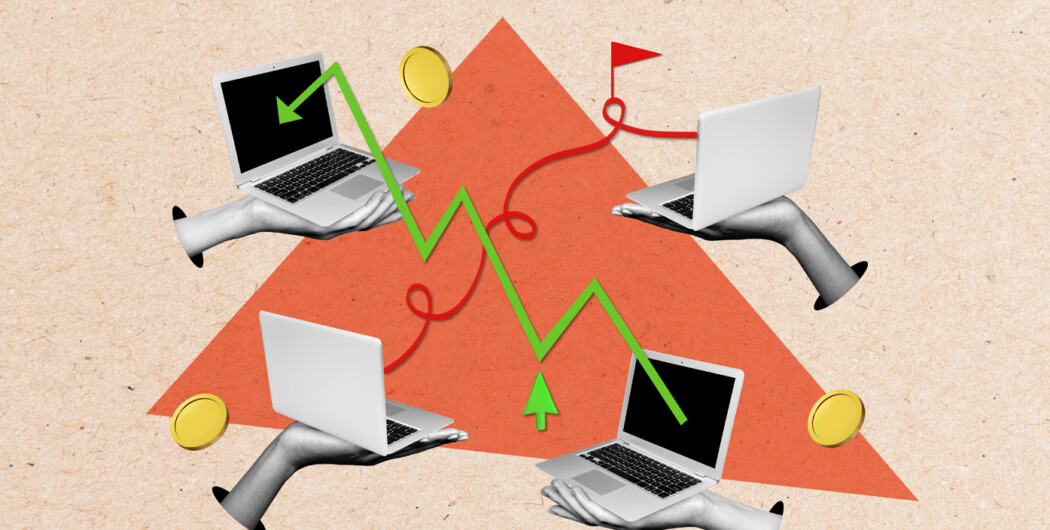

Did you know that the concept of digital currencies actually dates back to the 1980s? In 1983, David Chaum introduced a digital currency called eCash, which used cryptographic algorithms to secure transactions and prevent fraud. It never gained widespread adoption, but it laid the groundwork for later developments.
As more and more people have recognized the value of digital currencies, there is another issue that comes to mind – should you invest in cryptocurrency or trade it? This article will guide you through important considerations to make your pick.
Differences between cryptocurrency investing and trading
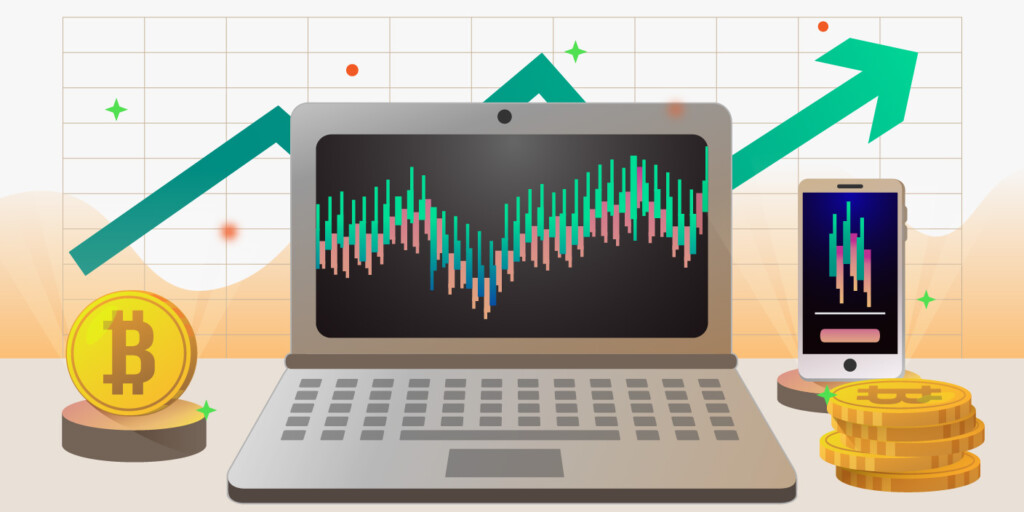
Both approaches involve buying and selling digital assets. But as you can guess, there is a lot more to the story. In this section, let’s explore the key differences between cryptocurrency investing and trading.
Type of analysis
Investors tend to rely heavily on fundamental analysis. This means looking at the underlying factors that may affect the long-term growth potential of a cryptocurrency – its technology, use cases, market demand, and competition. Other factors are tokenomics, developer background, third-party software integrations, number of users, and market adoption rate.
In contrast, traders tend to use technical analysis to forecast future price direction and market positioning. You’ll be analyzing historical data with various technical indicators and charting tools, like candlestick charts, moving averages, RSI, Bollinger Bands, Fibonacci retracements, MACD, etc.
Timeframe
“Traders focus on timing the market, while investors focus on time in the market,” says Craig Iskowitz, founder and CEO of Ezra Group.
Longer timeframes – daily, weekly, or even monthly charts – are more useful for crypto investors. How so? These timeframes are better at demonstrating long-term trends and help investors avoid being overly reactive to short-term price movements. The longer you plan on HODLing a particular crypto, the higher you need to go with the timeframe.
Traders prefer shorter timeframes. If they want to capture quick price movements, 5-minute or 15-minute charts are popular picks. If they want to confirm trends and make more informed trading decisions, they’ll also use 1-hour or 4-hour charts. The more active you are, the lower the timeframe.
Trade frequency
Crypto investors tend to hold on to their assets for longer periods without selling – hence, a low trade frequency. Their investment goals may even span over a few years, with very few transactions in-between.
If you look at trading, it’s all about high frequency. Not every trader is looking for opportunities to make gains through high-frequency trading. Some are opting for a more measured pace – like in swing or position trading. But in comparison to investing, the difference in the intervals between opening and closing trades is apparent.
Costs
Traders typically have to pay more transaction fees because of the higher number of trades they’re making. They also need to consider capital gains tax, which is paid on each asset that’s sold for short-term profit. Investors, on the other hand, are subject to fewer charges, given that they make fewer and less frequent transactions.
Risk profile
“Risk profiles of different people can vary widely, with some individuals being comfortable taking on significant risk, while others are more risk-averse,”
– Financial Industry Regulatory Authority.
Cryptocurrency investors are known for a lower tolerance for risk, at least when you compare them to traders. This is in line with the broader trend in traditional investing. An investor’s focus is on achieving steady, consistent returns over time.
Crypto traders are better described as risk-takers. They are looking for short-term gains and are willing to take on more meaningful risks in pursuit of these returns. That is also why they’re more focused on short-term price movements.
What may go wrong
In the case of trading, one of the main risks is the volatility of the market. Cryptocurrencies are known for their rapid and sizable price fluctuations. Therefore, it often turns into a high-risk endeavor. If you don’t have a thorough understanding of market dynamics or employ proper risk management, you can quickly lose money trading in this market.
As for investing in cryptocurrencies, you need to consider the lack of regulation and oversight in the industry. This can create an environment where fraudulent activities and scams can flourish. As an investor, you’re running into a risk of losing your entire investment. Remember that there is still a lot of uncertainty surrounding their long-term viability and value.
Both trading and investing also carry the risk of cyberattacks and hacks. Proper security measures usually do the trick, but it doesn’t guarantee complete protection.
Is it worth investing in crypto?

As mentioned, it’s not clear how crypto will play out in the long term. While some investors have seen hefty profits from investing in cryptocurrencies, others have lost money.
That is actually the overarching theme of investing – a coin with two sides when it comes to risks and rewards. Only in cryptocurrencies, the difference in outcomes is palpable. Cryptocurrencies can be more volatile and risky than traditional assets like stocks and bonds. At the same time, they also offer the potential for higher returns.
Is crypto good as a long-term asset? Well, for those who believe in the long-term potential of blockchain technology and cryptocurrencies, it’s a yes. Cryptocurrencies have the potential to provide greater financial freedom to individuals around the world. And if you also subscribe to that idea, investing in it can help you achieve your personal financial goals. Just be mindful of the risks.

Are you an investor or a trader?
Think about your mindset. If you’re an investor, your mindset is focused on long-term growth and wealth accumulation. You are patient and disciplined, showcasing the willingness to wait for your investments to appreciate in value over time.
In this case, you are also less concerned with short-term price fluctuations and are more interested in the fundamentals of a given cryptocurrency. Finally, you focus on finding quality cryptocurrencies with strong growth potential.
If you’re a trader, you’re more concerned with short-term price movements. You’re probably more active and opportunistic and feel quite at ease with technical analysis (charts, indicators, and algorithms).
Chances are you have a higher risk tolerance and are more comfortable with market volatility and uncertainty.
Combining both approaches
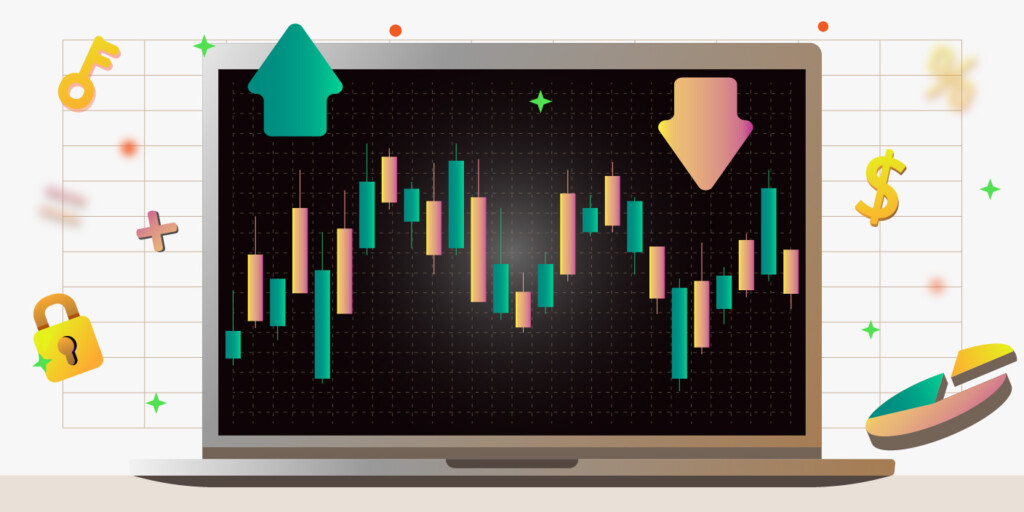
Do you even have to choose between trading or investing in crypto? Not really.
There is no one stopping you from combining both approaches. This means investing in cryptocurrencies for long-term growth while also trading to take advantage of short-term market trends. This combination can bring additional perks, like diversifying your crypto portfolio, reducing risk, and potentially increasing profits.
To implement this strategy effectively, you’ll need to do your research into the crypto market’s dynamics and trends – various cryptocurrencies, their potential use cases, and their market capitalization. You’ll find that some will make better investments, and some – trading assets.
Sources:
Trading vs. investing: which is better for you? Business Insider
Day trading vs. long-term cryptocurrency hodling: benefits and drawbacks, Cointelegraph
Risk and return, WallStreetMojo
Is cryptocurrency really an investment for the long term? The Motley Fool


